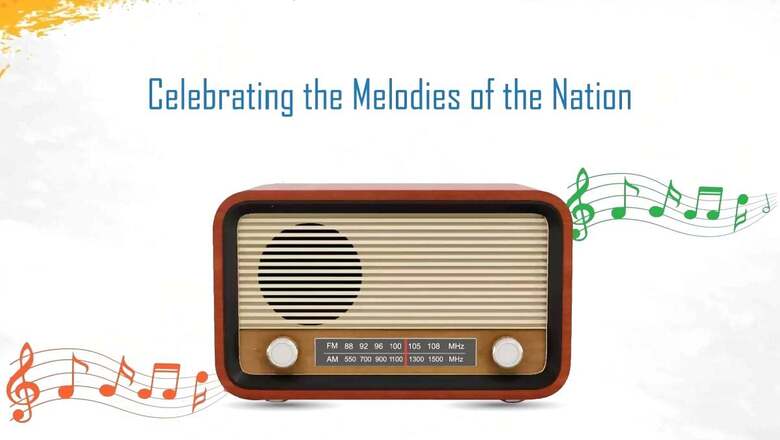
views
Radio served as the sole broadcasting medium before the emergence of TV and other digital mediums. India witnessed its first radio broadcast in June 1923, initiated by the Radio Club of Bombay. On July 23, 1927, the Indian Broadcasting Company (IBC) came into existence as the country’s first radio company. However, IBC was shut down in less than three years of its launch.
This was followed by the launch of All India Radio (AIR) in April 1930 as the Indian Broadcasting Service. Over the decades, AIR has played a pivotal role in shaping public opinion, promoting cultural heritage, and providing emergency communication during crises.
By the time of India’s independence in 1947, the country had six AIR radio stations in Delhi, Mumbai, Kolkata, Chennai, Lucknow and Tiruchirappalli. The name of AIR was changed to Akashvani in 1956.
Today, AIR has 262 radio stations that broadcast nearly 650 news bulletins in 90 languages. The channel also airs music content ranging from Indian classical to film songs, band albums and solo ones. Privately owned radio stations are also quite popular among listeners in India.
National Broadcasting Day Significance
The significance of this day lies in acknowledging the pivotal role of radio as a medium of communication that has greatly influenced Indian society.
Radio broadcasting has been a crucial tool for disseminating information, education, and entertainment across diverse and widespread populations. Over the decades, it has played a key role in nation-building, providing news and information during critical times, including during the freedom struggle and subsequent national emergencies.
National Broadcasting Day celebrates the legacy of radio and its evolution, highlighting its enduring relevance even in the digital age.
This day also reminds us of Netaji Subhash Chandra Bose, who started the Azad Hind Radio to encourage Indians to rise against British rule.
How did it come to India?
The establishment of this day and the celebration of radio broadcasting’s significance can be traced back to several key historical milestones. On July 23, 1927, the Indian Broadcasting Company initiated its first radio transmission from Bombay (now Mumbai). This marked the beginning of organised radio broadcasting in India.
In 1930, the Indian State Broadcasting Service (ISBS) was established, which later became All India Radio (AIR) in 1936. AIR played a crucial role in expanding radio services across the country, making radio an integral part of Indian society. Over the decades, radio broadcasting expanded to cover a wide range of programs including news, education, entertainment, and cultural content, reaching remote areas and diverse populations.
National Broadcasting Day serves as a reminder of the enduring legacy and continued importance of radio as a medium of mass communication in India. It is a day to celebrate the rich history of broadcasting and its impact on society.
















Comments
0 comment